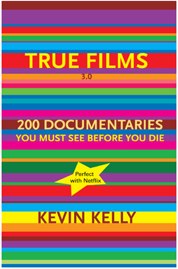If you’ve ever worked in a bookstore, you’re probably intimate with the practice of pulping mass market paperbacks. Publishers reimburse booksellers for inventory they don’t sell, but paperbacks are so cheap to produce that it would cost more to return them than to throw them away. Instead, stores tear off the covers, mail those back as proof of unsold inventory, and throw the books in the trash. [More]
publishing
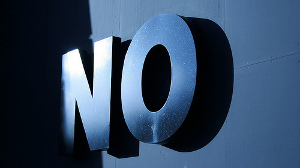
Apple And Audible Refuse To Sell Author's Audiobooks Without DRM Or Abusive Licensing Agreement
Cory Doctorow is self-publishing a book and documenting the process for Publishers Weekly. His latest column is about selling audiobook versions of his past works, and how both Apple and Audible have refused to budge on their anti-consumer policies when it comes to digital rights management (DRM) and end user license agreements (EULAs). Even though both companies get paid the same either way, and even though both Doctorow and his publisher, Random House, want to sell the content without these restrictions, Apple and Audible have said no. [More]

Textbooks Publishers Using "Packets" To Fight Used Book Market
Students who prefer to shop for textbooks online are encountering a hitch in their efforts. University and College courses are increasingly using bundled versions of textbooks that come with their own ISBN number. School book stores sell the packets as a single item, because their contents don’t come itemized.
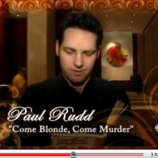
Romance Novels Selling Like Hotcakes Because We're All Poor
Harlequin, the been-around-forever romance novel company, reported a 32% increase its 4th quarter from a year ago, says ABC News. In this video clip, they look at the company’s single minded focus on churning out 1200 new titles per year at $5 each, in pretty much every sub-genre you can invent. The best parts of the segment, however, are watching various celebrities—especially Martin Bashir, George Will, Seth Rogen and Paul Rudd—read samples. Their interpretations will make you feel “the purely caveman urge to pick her up and carry her to bed.”
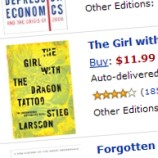
Nearly 30% Of Books Sold For The Kindle Are Now Above $9.99
It’s been a little over a year since Amazon released the Kindle, and now publishers are finally getting the chance to set their own pricing on ebook editions. The result has been a slow creep in pricing on some titles—in some cases to levels above the price of a paper edition of the same book—for a digital edition that you can’t resell, give away to someone else, or read on any other device. Kindle owners have started to notice, and now some of them are complaining that Amazon overpromised the $9.99 bookstore concept to move Kindles.
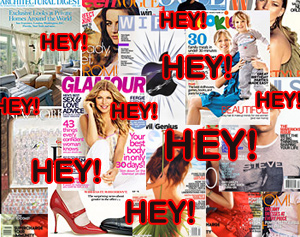
Conde Nast Will Never Stop Emailing You. Never. Stop Asking.
Condé Nast marketing department, are you on crack? Have you put some trinket from “The Hills” in charge of your mail server? Justin has emailed you repeatedly to tell you to stop spamming him. His marketing preferences on your site show a vast field of “No” for every single title on your list. And yet he’s received 16 emails since his last request—almost three a month. You should know better—or, as Justin puts it, “This isn’t some Nigerian guy trying to make my penis larger or send me money, this is a company here, in the United States, that I know should be held accountable.”

The Fakery Behind Amazon's "Top 10 Reviewers"
Amazon reviews, especially the effusive ones, have always been suspect—you never know when a five-star review came from an employee, publicist, or marketing type. Slate describes the dishonest world of Amazon’s “Top 10 Reviewers,” where a small group of writers churn out purple-prosed blurbs and jacket-ready compliments at an astounding rate, sometimes for a fee. In turn, these reviewers are inundated with a sort of fame as well as free merchandise—mostly books in the past, but now electronics and other goods. Because good reviews sell more books, Amazon has no incentive to weed out the reviewers who have turned the system into a cottage industry. We suggest you disregard any review with a “Top 10 Reviewer” label on it.
../../../..//2008/01/17/the-astrologer-magazine-shuttered/
“The Astrologer” magazine shuttered in December 2007 due to “unforeseen circumstances.” Hmm. [Neatorama]
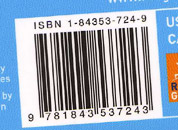
Harvard Bookstore: "We Own ISBN Numbers"
The Harvard Crimson ran a story last week about a student who was asked to leave the premises for writing down the prices of six textbooks at the Coop, Harvard’s bookstore of record. The bookstore’s president says that there’s no official policy against students writing down information, but “we discourage people who are taking down a lot of notes.” But what’s more surprising, he tells the Crimson that the textbooks’ ISBNs—which can be used to look up the same books online—are “the Coop’s intellectual property.”
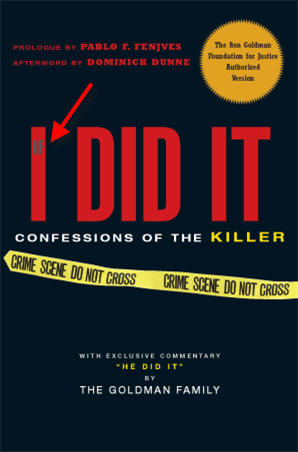
The Revised Cover Of OJ Simpson's Memoir Is Not Subtle
All this talk about OJ Simpson being arrested and charged with a felony reminded us that his memoir went on sale Sep. 13. After the book and tv special were canceled following unprecedented consumer backlash, the rights to the manuscript were transferred to the Goldman family by a Florida bankruptcy court.







